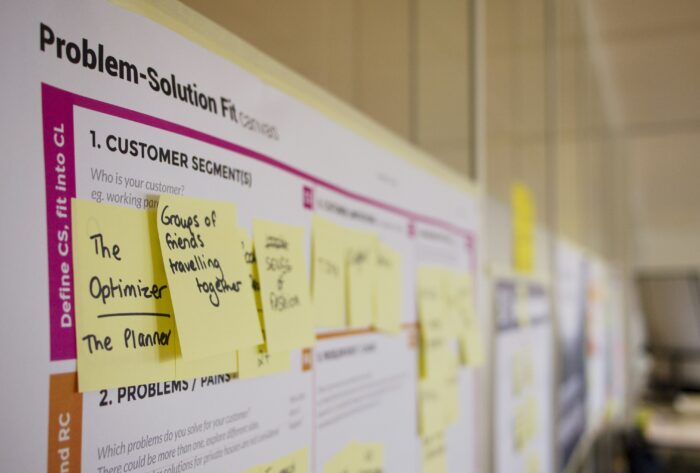

Understanding what project managers do is essential before you start learning how to become one yourself. If you’re wondering how to become a project manager without experience, it’s important to grasp the key responsibilities of the role first. Project managers handle project planning, execution, and closure, ensuring projects are completed on schedule while adhering to financial constraints and meeting quality requirements. Exploring entry-level opportunities or transferable skills can help you get started, even without prior experience.
Effective project managers embody leadership abilities, communication skills, time management, and problem-solving capabilities. Successful project managers excel at risk management, stakeholder engagement, and efficient resource distribution. The necessary abilities enable project managers to lead projects through difficult situations successfully.
Project managers must coordinate their work with different team members and various departments. They must also clearly understand the project’s objectives and demonstrate their ability to adapt to evolving requirements and demands. If you’re looking to explore job opportunities and learn more about project management roles, you can find a variety of listings on Jooble.
The position requires strategic thinking abilities to synchronize project targets with organizational mission statements. By understanding these project management elements, you will develop the skills to manage the diverse challenges and obligations that come with this profession.
Leverage Your Existing Skills
According to research done by TechRepublic, the global economy will need 25 million new project management professionals by 2030.
If you’re wondering how to become a project manager without experience, it’s important to evaluate your current skill set and identify ways to apply it in your new role.
Effective project management requires skills, including communication and leadership, which you can use in different professional roles. Through evaluation of your present abilities, you can distinguish between project management-compatible areas and those requiring additional improvement.
Communication Skills
Project management depends heavily on strong communication abilities to function correctly. Your previous work experience, where you communicated with clients or project team members, means you have established essential groundwork in this vital capability.
Project managers should express their ideas in understandable terms while ensuring that all project stakeholders understand the project goals and current progress. Clear communication requires proficiency in both spoken and written forms and constructive response capabilities are needed when receiving feedback.
Effective communication requires a deep understanding of cultural and interpersonal differences, especially when collaborating in diverse teams. Modifying your communication approach to fit different audience needs can strengthen partnerships while reducing potential communication errors. Your project management skills improve when you practice active listening and empathy, as these behaviors strengthen communication effectiveness.
Organizational Skills
In your past positions, did you handle schedule management or coordinate appointments and events? If you’re exploring how to become a project manager without experience, these skills are highly relevant. The ability to manage schedules and events translates effectively into controlling project timelines and resources. Project managers who can effectively prioritize tasks, set deadlines, and monitor milestones will successfully complete projects on time.
Strong organizational skills for the job go beyond basic scheduling and include efficient resource management, which covers budgeting and resource allocation. The ability to optimize resources, together with risk mitigation strategies, plays a significant role in achieving project success. When you use project management tools and software, you strengthen your organizational skills, enabling smooth process management and straightforward handling of complex projects.
Leadership Abilities
The leader position does not require holding an office title. Leading past team projects demonstrates your leadership capabilities, which need to be honed to become practical project management skills. Effective leaders generate motivation and inspiration within their teams, producing a cooperative workplace that also values accountability.
Project management leadership responsibilities include resolving conflicts and making essential decisions. Successful project management requires professionals to overcome obstacles and make wise choices during stressful times. When you build leadership based on trust, respect, and support, you can help your team reach project objectives.
Gain Relevant Knowledge and Certifications
Both project management experience and knowledge of project management methodologies and tools maintain equal importance for success. Building professional trust becomes easier when you earn credentials such as Certified Associate in Project Management (CAPM) or Project Management Professional (PMP). These certifications show your dedication to project management while giving you organized knowledge of essential project management principles and practices.
Online Courses and Workshops
Many online educational platforms provide project management courses to learners on the Internet. Online learning platforms such as Coursera, Udemy, and LinkedIn Learning deliver courses that cover topics on how to become a project manager without experience.
People starting their project management journey often begin by obtaining the Certified Associate in Project Management (CAPM) certification. CAPM certification provides essential knowledge to beginners who want to distinguish themselves in the job market.
To take a first step, check out our CAPM Exam Prep Course and start your journey to becoming a certified project manager.
Most of these courses feature interactive components and real-world case study examinations. Industry experts share their knowledge through these learning opportunities, which help students put theory into practice.
Even if you don’t have any relevant experience, workshops and seminars work to provide practical experience while letting participants build connections with other learners and industry experts. Through event participation, you will deepen your knowledge of project management methodologies like Agile or Waterfall, which will help you choose the proper method for your work style and industry.
Exam Simulators
Exam simulators represent an excellent preparation resource for certification examinations. Through realistic exam scenarios, simulators guide candidates in understanding the question formats they encounter. Through consistent simulator practice, your readiness for exams grows while your confidence builds. Understanding the exam format lets you pinpoint weak areas to concentrate your study time effectively.
Simulators provide essential practice for developing time management abilities, which you need to finish certification tests successfully. When you perform practice exams under timed conditions, you build the ability to pace your work and allow time to review your responses. Certification preparation transforms the process into a manageable experience, which reduces anxiety.
Networking and Mentorship
The success of every career transition requires active networking to thrive. Connecting with professionals in your field reveals insights and opportunities that you would not have discovered independently. A solid professional network helps you find jobs and team up with others while giving you valuable industry information that drives career success.
Join Professional Organizations
The Project Management Institute (PMI) is a professional organization that you should join. Members typically receive entry to resources and events along with forums that facilitate meetings with experienced and entry-level project managers. Such organizations act as educational platforms to study project management industry movements, new technological advancements, and established best practices.
By joining professional organizations, you gain access to conferences and workshops that enable learning from both industry leaders and fellow professionals. Attending these events will expand your project management knowledge base while motivating you to progress in your professional life.
Find a Mentor
Through mentorship, you can receive guidance and valuable experiences while obtaining advice on how to become a project manager without experience. Search for mentors across professional networks or LinkedIn and by attending industry events. Through their insights, a mentor helps you comprehend project management intricacies while teaching you to put theoretical knowledge into practical use.
Mentorship provides specific feedback and support, which helps you discover areas in which you can develop and improve. Through encouragement and perspective, mentors help you overcome comfort zone boundaries, gain experience, and get an instrument that leads to faster career growth.
Gain Practical Project Management Experience
You can obtain practical project management experience, even without formal expertise, through various methods. When you take on real-world tasks relevant to the job, you can develop a portfolio that proves your abilities to future employers.
According to SoftwareAG, approximately 80% of project managers believe that project portfolio management is a critical factor in influencing business success.
Volunteer for a Job as an Entry-Level Project
Step forward and take responsibility for work projects outside your regular job functions. Participating in cross-departmental projects and initiatives is an excellent training ground for professional development. When you adopt this proactive approach, your abilities grow, and your readiness to go above and beyond your job duties becomes evident.
Through volunteering, you can get direct experience and learn about multiple project management elements, which include how to engage stakeholders and manage risks. Hands-on experience allows you to improve your project management skills while developing greater confidence in your abilities.
Freelance or Contract Project Management Job
Explore opportunities in freelance or contract project management work. Freelance project jobs in project management enable you to apply your skills in practical situations while increasing your collection of successful project portfolios. As a freelancer, you gain flexible working conditions that will allow you to serve different clients across multiple industries, which leads to expanded experience and expertise.
Contract positions offer temporary work opportunities that act as foundations for permanent employment by letting candidates show their professional strengths to future employers. Demonstrating your freelance and contract achievements enables you to establish your qualifications for project management positions.
Breaking into Project Management Job Search
You will probably start thinking about becoming a full-time project manager after spending time working as a contractor or freelancer. Even more, on average, a project manager in the US earns $98,580 annually or $47 per hour, according to the US Bureau of Labor Statistics.
Moving to a steady position establishes new opportunities that promote development alongside organizational collaboration and lead to future career success. Establishing success begins with these steps.
How to Land Your First Job in Project Management
- Read the Job Description Thoroughly
Study the exact duties and the required credentials that the company demands from candidates. Use resume content that focuses on skills and accomplishments that match the position’s requirements. - Learn About Project Management Software
An applicant who knows how to use project management tools such as Trello, Asana, Jira, and Microsoft Project will stand out to employers. Demonstrate your ability to use technological tools for efficient workflow and team coordination management abilities. - Look for an Assistant Project Manager Role
Developing essential project management expertise starts through entry-level work as an assistant project manager, where staff members teach you critical job skills. Transitional positions provide essential on-the-job role training that helps develop needed abilities while delivering essential team support. - Highlight Transferable Skills for Entry-Level Roles
As you pursue a project management career without existing experience, focus on mastering communication and leadership together with organizational abilities and issue-resolution competencies. Your ability to handle task coordination emerges clearly through work experience in any discipline.
Tips for Breaking In
- Take Certifications: Projects manage their reputation more effectively by obtaining certifications which include CAPM (Certified Associate in Project Management) or PMP (Project Management Professional).
- Network: You should attend industry events coupled with networking with professionals who work in your field. Actions driven by referrals may surprise you with unanticipated prospects.
- Showcase Results: In your job application, submit previous project examples, including both formal PM positions and informal roles where you managed or contributed work.
Modify Your Project Management Resume to Fit Requirements
As you prepare to apply for project management roles, ensure your resume showcases your applicable skills and experience. A professionally written resume with a mindful summary that displays your unique qualifications and skills will greatly benefit your PM job search. You can read more about how to write a professional resume summary.
Highlight Transferable Skills
Concentrate on abilities crucial for project management positions, including leadership, problem-solving, and time management skills. Provide concrete examples that illustrate the application of these skills during your previous work experiences. When you present them with solid proof of your skills, hiring managers can better understand your potential.
Beyond your skills list, include key achievements or projects that show your task management capabilities and team leadership experience. When you focus your resume on relevant management experiences, you become an exceptional candidate who demonstrates readiness for project management tasks.
Target Entry-Level Positions
Search for entry-level project management opportunities that will enable you to partner directly with project managers. Starting your professional journey with positions such as Project Coordinator or Junior Project Manager can help you enter the project management industry. These positions expose you to essential project management processes while allowing you to learn from seasoned professionals.
Beginning your career in an entry-level position enables you to gain hands-on experience while learning to handle greater responsibilities, which creates a strong base for your future project management career. The method helps you build both capabilities and self-assurance, which serves as preparation for advanced career positions later on.
Stay Motivated and Persistent
Success in new professional fields requires difficult work, but persistence is essential. Reward your progress with small wins while maintaining your drive and persistently working towards your ultimate objective. Resilience and positivity help you overcome challenges, making them essential for successful career transitions.
Continuous Learning
Project management exists as a dynamic discipline that undergoes constant evolution. You can keep up with current trends and new tools through workshops, industry blog readings, and webinar participation. When you adopt a continuous learning mindset, you maintain competitiveness and stay informed about the latest industry developments.
Participation in a network of fellow learners and professionals delivers both support and motivational insights during your career journey. When you maintain an open mind toward new concepts, your ability to adjust to changes will help you find growth opportunities.
Set Realistic Goals
Develop practical short-term objectives alongside your ultimate long-term career plans during your professional transition. Following this method keeps you concentrated and inspired throughout your path to project management certification. When you divide your career path into manageable portions, you create a less overwhelming process that brings more fulfillment.
When you frequently check your progress and make necessary changes to your goals, you will maintain your course toward your desired outcomes. Use milestone celebrations as a tool to evaluate your development and preserve your confidence in project management success.
Conclusion
Learning how to become a project manager without experience requires a mix of determination, strategic planning, and a commitment to growth. Your existing skills, combined with new knowledge acquisition and networking efforts along with practical experience, will create a successful path in project management.
All project managers were beginners who achieved their career objectives through proper resources and the correct mindset. You should accept challenges as growth opportunities through dedicated persistence while maintaining your commitment to the project.
The road to becoming an effective project manager demands persistent effort alongside viewing challenges as growth opportunities and staying committed to your vision. So, get into project management right now!





